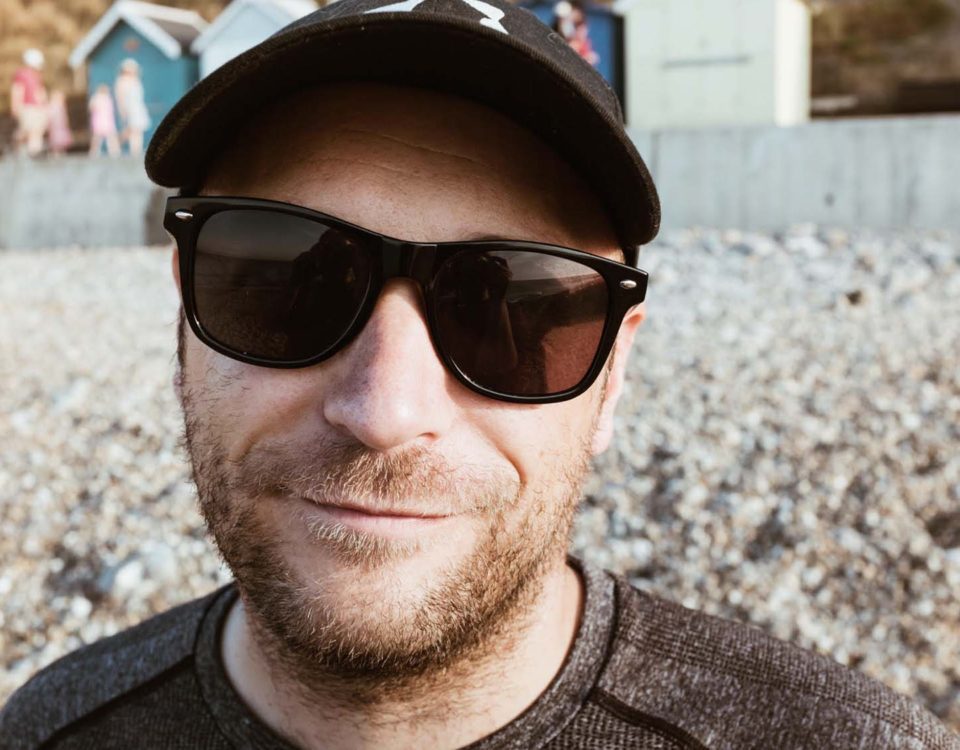Ash Murrell
The benefits of a portfolio review for photographers
By Fiona Campbell

About five years ago, local commercial photographer Ash Murrell made a bold career decision: to take control of his artistic vision. He knew the kind of work he wanted to get into — motion photography and CGI – but first he needed a strong sense of where he was at. The way he achieved that? A portfolio review.
A portfolio review is a really good way to ascertain your current situation with your portfolio,” says Murrell, adding it helps answer the question, Is it too crazy in different directions, or does it have enough focus that will help clients or prospect galleries understand who I am and what I do?”
A photography portfolio is a curated collection of images that showcases your work, usually with a unifying theme, style (B&W, film) or genre; say weddings, portraits or architectural imagery. Its purpose is to convey your skill, technique and personality to prospects, such as clients or galleries. It can be paper or digital, evolves over time, and you can have more than one.
Murrell makes a point to get his portfolio reviewed regularly (his latest was three years ago) and he usually finds diverse people to do the work: for example, peers, someone working in the area or an art agency. My goal is to find out what works and what doesn’t,” says Murrell. There are a lot of photographers out there and if you’re looking to get into a specific niche, you need to be someone who’s different in that niche. Not necessarily better, just different.”
Not just for professionals, a portfolio review can give useful feedback for all levels of photographers.
If you’re a beginner, a portfolio review is so powerful because it takes years of knowledge, applies it and saves you from making a bunch of mistakes,” says Murrell. If someone says, I want to get into wedding photography,I can look at their images and say, What you did here is perfect — double down on that.And I can really show them where their existing images have strengths that can be applied to that [direction].”
For intermediate photographers—perhaps someone who’s been shooting and making a bit of money on the side and now wants to get serious—Murrell says he can help them get razor focused” adding, When you have an existing idea of who you’re building this portfolio for you can progress even quicker.”
And for professionals, a portfolio review can help photographers refine their work: You need to know what offerings you can give to your clients to make it more saleable,” says Murrell. For example, maybe your images are beautiful, but your Photoshop isn’t up to par with industry standard.
To prepare for a portfolio review, Murrell suggests photographers carve out a space of uninterrupted time to really look at their portfolio and ask, Who is this for?”
Thats the number one question,” says Murrell.Whenever people say, I don’t understand why Im not booking more headshots, and their portfolio shows only plants and animals… No one wants to get their photo taken by someone who’s really good at taking pictures of deer.”
He adds it’s critical to be honest with yourself, then make an initial culling of images so you can bring your best portfolio forward: The key to a successful portfolio is building something that youre proud to show people because that is going to show. And if you’re not comfortable with your portfolio, that means you need to work on it more, and thats the fun part,” says Murrell. Really build an understanding of what makes you you, and why your art matters to the world.”
But what if you’re thinking about making a move into a new genre, say from landscapes to street photography — how can a portfolio review help then?
If someone is transitioning from one genre to another, or say they have an amazing portfolio but they want to move in a different direction, I can suggest what to pull from their existing portfolio,” says Murrell.
Ultimately, while it’s lovely to get lots of likes for images shared on social media, a portfolio review offers the opportunity to get feedback from someone who isn’t invested in you personally.
I think in order to grow as an artist, the most critical skill that you can acquire is to be able to take constructive criticism,” says Murrell. My job is to be the bad guy and tell what doesn’t work and why…A very small tweak can change your portfolio dramatically. And it allows your art to grow.”
He adds, The core of a portfolio review is to help you discover who you are as an artist, because the best portfolios come from that place.”
To learn more visit Ash Murrell Photography.







